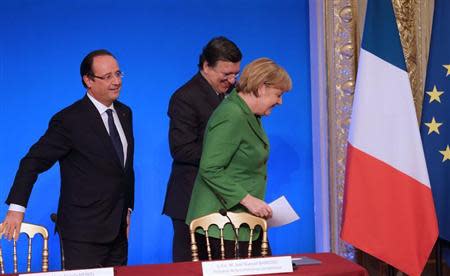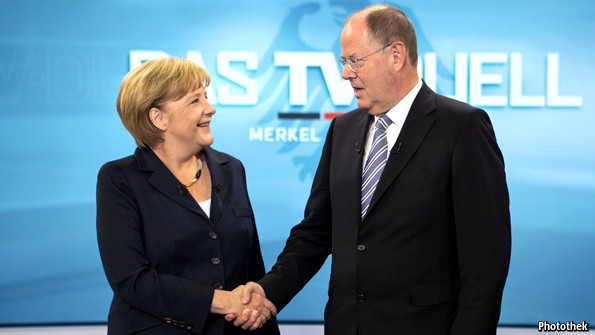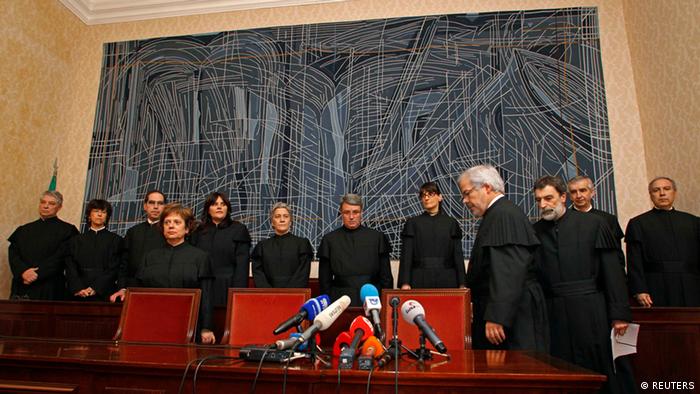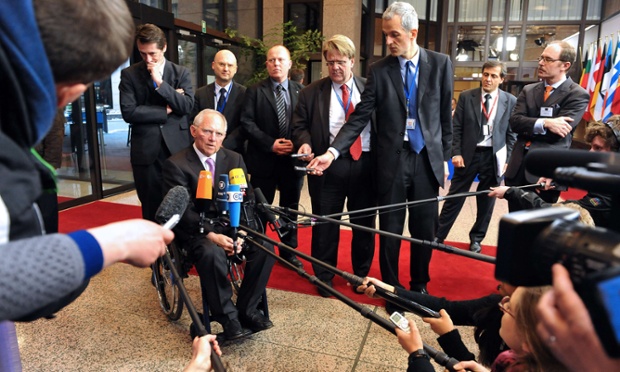
An update with an article from the Economist:
http://www.economist.com/news/leaders/21573972-bailing-out-cyprus-was-always-going-be-tricky-it-didnt-have-be-just-when-you
The situation is evolving as I write this blog post, but this is a very important and possibly dangerous development in the Eurozone. Last week's EU summit began with a focus on jobs and growth, but would end with a focus on Cyprus. Reporting before the summit noted there appeared to be little pressure for action coming from financial markets as in an article by
Reuters.
Negotiations over Cyprus debt began to hit the news by Saturday morning. Saturday evening, an off the record session of the
Brussels Forum on the Eurozone crisis focused on the risk of a breakup of the Euro based on political factors. The discussion quickly turned to the agreement on the Cyprus "haircut" which would affect all depositors. Some of the same issues which have come up in the media were discussed that evening, and were similar to the comments below:
"The latest proposal of the Eurogroup, regarding the bail out of Cyprus
has caused unprecedented unrest that has not been limited to the
national or even the European level. The essence of the proposal is for
Cyprus to contribute a third of the overall €17 billion financial
assistance required via a haircut in depositors’ money, including even
the average account holder whose deposits do not exceed €100,000 (i.e.
violating the guarantee offered to them in case of bank failure) . In
the last Eurogroup meeting, the German finance minister, Wolfgang
Schäuble, with the backing of his northern allies and with the blessing
of those countries possibly envying Cyprus’s success as an international
financial centre, cold-bloodedly blackmailed Cypriot officials with a
‘take it or leave it’ deal. Cypriot officials, though accused by some
domestically for their negotiation strategy, at the end of the day had
to decide within minutes on accepting a wide haircut on deposits (a red
line for Cypriot negotiators, even considered to be a ‘stupid idea’ by
the Finance Minister) otherwise the island’s second largest commercial
bank would be instantly refused further emergency liquidity assistance
and essentially be left to collapse, possibly taking down with it the
whole economy."
http://blogs.lse.ac.uk/europpblog/2013/03/20/cyrpus-eurozone-crisis-germany/
It would seem strange that a country as small as Cyprus with a population of 1.1 million people could be the focus of the current crisis, but it has raised many issues around the whole debt crisis in Europe. The Cypriot Parliament refused to support the deal, and now are in a race against time to find a solution to the debt problem - for now banks are expected to be closed through next Tuesday, but there are concerns that people will run out of cash, and even the British government had to send cash for their soldiers, pensioners and diplomatic personnel based in Cyprus.
http://money.msn.com/business-news/article.aspx?feed=AP&date=20130321&id=16262088&ocid=ansmony11
Concerns about Russian depositors has played a role in the drama, and the Cypriot government has attempted to work with the Russian government to help solve the crisis, but the Russian government has been reluctant to offer funds. There have been discussions of a Russian base or access to gas reserves.
http://www.google.com/hostednews/afp/article/ALeqM5jBrASOxV9_pE5mntSBHRXsozpbyQ?docId=CNG.5bc8b1a45bb0c242f36354fb6e5c6d02.141&index=0
The latest statement from the Eurogroup shows a major shift since last weekend, away from taxing deposits below 100,000 Euros:
http://www.consilium.europa.eu/uedocs/cms_Data/docs/pressdata/en/ecofin/136435.pdf
Protests have been ongoing since last weekend:













































